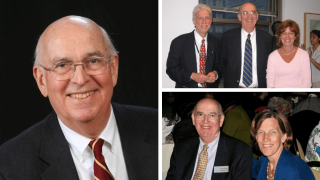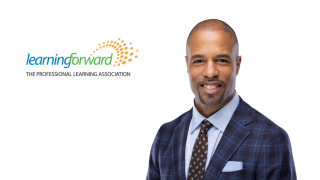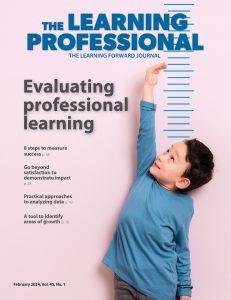When the Denver Public Schools joined the Redesign PD Community of Practice, we knew we needed to work on improving professional learning across the district. We had recently created a new Professional Learning Center and wanted to have an influence on the learning delivered by central office departments and by instructional superintendents working with principals.
Recent findings from a 2015 study on the current state of professional learning in Denver Public Schools revealed that a number of important areas related to professional learning quality and measurement needed to be addressed, so we felt compelled to create this new role.
That new role was the professional learning partner — a person who helps subject matter experts and others provide educators with a high-quality learning experience. The first four learning partners we hired planned to work with the central office experts as well as with the instructional superintendents who supervise principals. But that direction changed after I realized that some administrators didn’t fully maximize the partner’s intended role.
Initially there was some skepticism about why these roles were needed, so now the professional learning partners are primarily working with the central office departments. We went where we were needed and wanted the most in order to get traction.
Creating a robust service model
And the demand for their services has been growing—so much so that the Student Equity and Opportunity department recognized the need for this new role and allocated money for a dedicated professional learning partner position, a trend the Professional Learning Center anticipates they’ll see more. A professional learning research analyst also recently joined the team and has been focused on analyzing trends among educators to better determine professional learning quality and impact on teacher behaviors and student outcomes.
Our team has created a service model that clearly outlines what the professional learning partners do. The partner service model follows the district’s continuous improvement cycle. The model offers an array of services that span from analyzing relevant data and learner needs to planning professional learning design and measuring its impact. A major component of the model includes collaborating with subject matter experts to align professional learning design and facilitation to the Framework for Effective Professional Learning. The new framework bridges well-known, research-based best practices in professional learning into one cohesive tool that can be used for both planning and measuring quality. Additionally, learning partners regularly leverage results from a common evaluation survey.
“We shifted from responding to requests to providing a robust service model that incorporates the professional learning quality and impact tools we designed,” says Gabe DeMola, one of the professional learning partners.
While the professional learning partners provide services to over a half-dozen departments, they have prioritized two areas for the district in 2016-17 — training in early literacy for roughly 2,000 teachers and the roll out of a new 9th -12th-grade English language arts curriculum that focuses on aligning Common Core literacy practices with Common Core resources. Roughly 150 teachers are part of that training, which will continue through the upcoming school year. Lindsey Smith, our director of K-12 literacy, says the learning partner provided feedback on the professional learning plan and “helped us to strengthen the PD sessions.”
Meeting the demand
It will be an ongoing challenge to help departments understand how to best leverage the professional learning partner’s expertise, and that they are there to support the design, delivery and measurement of high quality professional learning. Our center is committed to implementing the new service model and is partnering with central departments to ensure the focus is on continuous improvement.
Even with the increased resources, meeting the demand will be a challenge, but our team members are constantly looking at how they dedicate their time. Georgie Washington, one of our learning partners, says that compared to how professional learning was being delivered before, Denver Public Schools has made significant progress.
“Before the creation of the center, there were many individuals and teams that had it on their radar to provide high-quality support for adults,” she says, adding that given competing priorities and tight timelines, many struggled to ensure that best practices in adult learning also remained at the forefront.
Now, the departments can call on expert consultants and are making use of the resources “on what a day of professional development should look like,” she says. “They are taking our tools, like the Framework for Effective Professional Learning and common evaluation survey, and running with them.”






